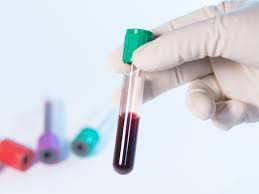Definition
Cytomegalovirus (CMV) is a member of the herpes virus family that can be transmitted through bodily fluids such as saliva, semen, vaginal secretions, blood, and breast milk. This virus is capable of infecting anyone, including pregnant women. CMV is one of the most commonly transmitted viruses from mother to child, occurring via the placenta during pregnancy, delivery, or breastfeeding. Infections before birth can lead to serious complications in babies, including deafness, vision impairment, intellectual disabilities, and other severe disorders.
Antibodies are proteins produced by the immune system to combat pathogens like bacteria and viruses. IgM is the first antibody produced in response to an infection, while IgG forms later and remains in the body for long-term immunity. Both are present in blood and other bodily fluids.
The CMV IgM antibody test detects IgM antibodies specific to CMV, which typically appear 1–2 weeks after an initial infection and disappear within several months. This test may also identify CMV directly in the blood.
Indications
CMV IgM testing is conducted to diagnose active, reactivated, or previous CMV infections in individuals at high risk of complications, such as:
- People with compromised immune systems caused by diseases or infections
- Recent organ transplant recipients
- Pregnant women showing signs of CMV infection
- Newborns presenting with symptoms of infection
Doctors may recommend testing if you exhibit symptoms such as:
- Persistent high fever
- Fatigue
- Appetite loss
- Muscle and joint pain or stiffness
- Headache
- Sore throat
- Swollen lymph nodes
- Enlarged liver and spleen
In infants, CMV may cause:
- Jaundice (yellowing of the skin and eyes)
- Low birth weight
- Microcephaly (small head size)
- Hearing or vision impairments
- Seizures
Contraindications
There are no specific contraindications for CMV IgM antibody testing. The test is generally safe, with minimal associated risks.
Preparation Before the Test
No special preparation is required for the CMV IgM antibody test. Fasting is not necessary. However, you should inform your healthcare provider about any current health conditions, medications, or supplements you are taking.
Test Procedure
The CMV IgM antibody test involves collecting a blood sample, usually from a vein in the arm. For infants, blood is typically drawn from the heel.
The area where the needle will be inserted is cleaned with an antiseptic to minimize the risk of infection. A needle attached to a sample tube is then inserted into your vein to collect a small amount of blood. You might feel a slight prick during this process, which generally takes only a few minutes.
After the blood is drawn, it is placed in a collection tube and sent to a laboratory for analysis using specialized equipment. Once the sample is taken, pressure is applied to the puncture site to prevent bruising or swelling. Rarely, some people may experience minor side effects such as pain, dizziness, or slight bruising, but these symptoms typically resolve quickly.
Normal and Abnormal Values
Normal results of this test usually show a negative, this indicates the absence of detectable antibodies. Abnormal results show as a positive, suggests a recent or active CMV infection. In some cases, the test result may be inconclusive. For definitive diagnosis, CMV IgM tests are often paired with CMV IgG antibody tests.
Results and Recommendations (Further Testing)
A positive CMV IgM antibody test result in the presence of symptoms indicates recent exposure to CMV. This is because the presence of IgM antibodies signifies that the immune system has recently initiated its response to the virus.
A negative CMV IgM test result suggests that the immune system has not yet produced IgM antibodies, indicating no prior exposure or infection with CMV. However, if symptoms are present despite a negative result, this could be due to another infection or an insufficient antibody response, making CMV undetectable by the test at that time.
For unclear results, additional tests may be required for a definitive diagnosis. CMV IgM tests are commonly conducted alongside IgG tests. While IgM antibodies are detectable within days of infection but disappear after a few weeks, IgG antibodies take longer to develop but remain present for a lifetime.
Positive IgG and IgM results, or only IgM positive result can suggest a recent CMV infection. While positive IgG but negative IgM results typically indicates an infection that occurred approximately two months or more ago.
Consult the Right Doctor
If your CMV IgM test results are abnormal, consult an internal medicine specialist for an accurate diagnosis and appropriate treatment. The doctor may recommend additional or more specific tests to establish a clear diagnosis and tailor the treatment plan to your condition.
Interested in learning more about laboratory, radiology, and other test results? Click here!
- dr. Monica Salim
About Cytomegalovirus (CMV). (2020). Retrieved10 July 2023, from https://www.cdc.gov/cmv/overview.html
Laboratory Testing. (2020). Retrieved 10 July 2023, from https://www.cdc.gov/cmv/clinical/lab-tests.html
Cytomegalovirus Test. (2021). Retrieved 10 July 2023, from https://www.testing.com/tests/cytomegalovirus-cmv-tests/
Cytomegalovirus (Blood). (2023). Retrieved 10 July 2023, from https://www.urmc.rochester.edu/encyclopedia/content.aspx?contenttypeid=167&contentid=cytomegalovirus_blood
Cytomegalovirus (CMV) Test. (2021). Retrieved 10 July 2023, from https://medlineplus.gov/lab-tests/cytomegalovirus-cmv-tests/











